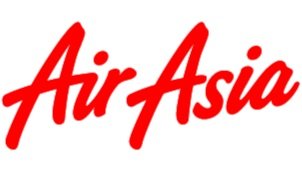MAHB is duplicitous and misleading in its arguments
SEPANG, 4 February 2019 - We refer to the statement by Malaysia Airports Holdings Berhad (MAHB) yesterday regarding the ongoing dispute with AirAsia over airport taxes.
It is our contention that MAHB’s statement has merely reaffirmed that the airport operator is duplicitous and disingenuous in its arguments.
Its seven-page statement titled “MAHB Clarifies on Airport Passenger Service Charge and Condition of Use”, in fact, does not clarify. Rather, it further muddies the waters in relation to the increased airport tax at klia2 that AirAsia has refused to collect and burden its guests with, in the interest of maintaining Malaysia’s position as a low-cost hub in the region.
AirAsia has always maintained the following:
The facilities and level of service at klia2 are inferior to those provided at KLIA, hence, the rates cannot and should not be the same.
From the onset, klia2 was deemed a low-cost terminal as specified on the websites of both MAHB and the Malaysian Ministry of Transport, yet MAHB insists on charging the same amount for klia2 as it does for KLIA, a full-service terminal.
The Malaysian government has long stated that it intends to position the country as a low-cost hub to promote tourism, a major economic sector. MAHB’s blatant disregard for this by attempting to compare airport charges with those of full-scale terminals in other Asian countries - many of which are now moving towards building low-cost carrier terminals (LCCTs) - is not only duplicitous, it is also doing a disservice to the people of Malaysia.
It is a fact that countries like Thailand, Indonesia and Japan, in line with changing global travel trends, have accepted that there are two operating airport modes - one for full-service carriers and one for low-cost carriers. These countries are already in the process of building LCCTs or revamping their airport tax regimes in light of this reality:
Thailand is currently developing U-Tapao airport in Pattaya as a low-cost alternative to Bangkok
Jakarta’s Soekarno-Hatta airport already charges lower rates at Terminals 1 and 2 than at Terminal 3, with an eye to further reducing airport tax at Terminal 2, which will be converted into an LCCT
Japan's Tokyo Narita airport has a dedicated low-cost terminal that will be expanded to twice its current capacity by 2022
We also dispute MAHB’s contention that it has no say in determining airport tax rates. In fact, MAHB, as the airport operator, is involved in the process every step of the way.
On our part, in partnership and cooperation with, and in support of, the Malaysian Government, AirAsia has worked hard to ensure air travel remains affordable to everyone. This can be seen in our practice of offering low fares since our inception and mounting extra flights during peak festive periods, such as for the upcoming Chinese New Year holiday.
MAHB, in its statement yesterday, has sought to fall back on arguments such as:
Mavcom wants to instil fairer competition, including better alignment to international guidelines, including the International Civil Aviation Organisation (ICAO) principle of non-discriminatory pricing at airports
The Board of Airline Representatives (BAR) - an organisation representing the majority of full-service carriers operating in Malaysia - finds that by not collecting the increased rates, AirAsia is creating an “unlevel playing field”
Other airlines operating at klia2 collect the increased airport tax and, by inference, AirAsia is thus being unreasonable
It is not our intention to reply to MAHB’s arguments point by point. However, we are forced to reply to some of these points to ensure any duplicity or incorrect argument is immediately rebutted in order not to obfuscate the real issues.
Our replies to these contentions are as follows:
On all points, our position remains that there are two different service levels at KLIA (premium) and klia2 (low-cost), hence the decision to charge the same airport tax is fundamentally wrong and against the principal of non-discriminatory pricing, which assumes comparable service levels.
We also maintain that BAR represents only the interests of full-service airlines and not low-cost carriers. Airline members of BAR already charge premium fares to their passengers. Therefore, they cannot impose their standards on low-cost carriers, who operate in a different segment altogether.
As far as other airlines at klia2 are concerned, we would like to note that AirAsia accounts for more than 90 percent of travellers at klia2, so citing the example of airlines that use the airport at a miniscule fraction of what AirAsia does, again, is duplicitous and disingenuous, and is akin to comparing apples and oranges.
As stated previously, we will continue to make air travel accessible to all and to ensure fairness of charges for consumers based on services, including those provided by MAHB, and we believe that the public should not be made to suffer for the sake of enriching a monopoly.
*** END ***
Note: Kindly attribute this statement to AirAsia Malaysia CEO Riad Asmat.
